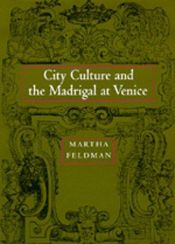City Culture and the Madrigal at Venice
Blurb
Martha Feldman's exploration of sixteenth-century Venetian madrigals centers on the importance to the Venetians of Ciceronian rhetorical norms, which emphasized decorum through adherence to distinct stylistic levels. She shows that Venice easily adapted these norms to its long-standing mythologies of equilibrium, justice, peace, and good judgment. Feldman explains how Venetian literary theorists conceived variety as a device for tempering linguistic extremes and thereby maintaining moderation. She further shows how the complexity of sacred polyphony was adapted by Venetian music theorists and composers to achieve similar ends.At the same time, Feldman unsettles the kinds of simplistic alignments between the collectivity of the state and its artistic production that have marked many historical studies of the arts. Her rich social history enables a more intricate dialectics among sociopolitical formations; the roles of individual printers, academists, merchants, and others; and the works of composers and poets. City Culture offers a new model for situating aesthetic products in a specific time and place, one that sees expressive objects not simply against a cultural backdrop but within an integrated complex of cultural forms and discursive practices.

 English
English Español
Español Deutsch
Deutsch










Member Reviews Write your own review
Be the first person to review
Log in to comment